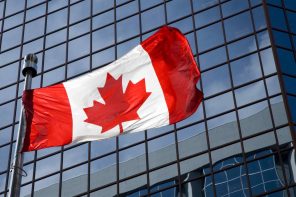
This is probably one of the most important factors that you should assess before you file your taxes each year, especially if this is your first time.
It is really important to file correctly. So what does this mean and where do I start?
Filing correctly means filing your Canadian tax return compliantly and in line with the tax law of Canada. You should start by figuring out your residency status. Hopefully, after reading the below you will have a better understanding of this, but if not, we’ve included some other resources to help you.
Filing incorrectly is a nasty business. We’ve seen our fair share of this, so please take it seriously.
Let’s Begin!
The relevant facts in determining your residency status include the residential ties you have in Canada, the purpose and permanence of your stays abroad, and your ties abroad.
More About Taxes:
Important dates in the Canadian tax year
What is the difference between resident and non-resident?
You are a non-resident for tax purposes if you:
- normally, customarily, or routinely live in another country and are not considered a resident of Canada; or do not have significant residential ties in Canada; and you lived outside Canada throughout the tax year, or you stayed in Canada for less than 183 days in the tax year.
You are an ordinary resident in Canada for tax purposes if:
- Canada is the place where the individual, in the settled routine of his or her life, regularly, normally or customarily lives.
For the record, if you’ve never filed a tax return before in Canada, you’re on a 1 or 2 year Working Holiday Visa, and you plan on staying for that amount of time and then leaving Canada, it’s fair to say that you should file as a NON-RESIDENT for tax purposes.
Think you should be filing as a resident? Being a resident doesn’t necessarily mean that you are a permanent resident in Canada, so if the following applies to you, you may well be.
Read Also
The T4 explained

Generally, as a RESIDENT, you’re looking to tick the majority of the following boxes:
You should have the following residential ties to Canada
Significant ties
- A spouse or common-law partner
- A house or apartment (own or renting)
- Dependants
Secondary ties
- Personal Property such as furniture, or a car/vehicle
- Social ties such as memberships of Canadian recreational, religious or professional organizations
- Economic ties such as a bank account, credit cards, investments,
- Canadian health insurance (BC Health, Alberta Health, etc.)
- Canadian drivers license or Canadian passport
- You are permanently employed in Canada
- You are planning on staying in Canada past your working holiday visa and are applying for PR
- Canada should be the place where you customarily live
- You spent more than 183 days in Canada*
*Note: A lot of people think that this is the most important factor to consider, however, this is not the case. Make sure that the majority of the other factors apply to you too.
If any of the above residential ties are unfamiliar to you and you’re on a working holiday visa, you should file as a non-resident.
If you’re really confused (we’re sorry), we tried. You can also call the CRA to confirm your status or ask a tax agent like Taxback.com who specializes in helping participants of the working holiday visa.
Happy Filing!




